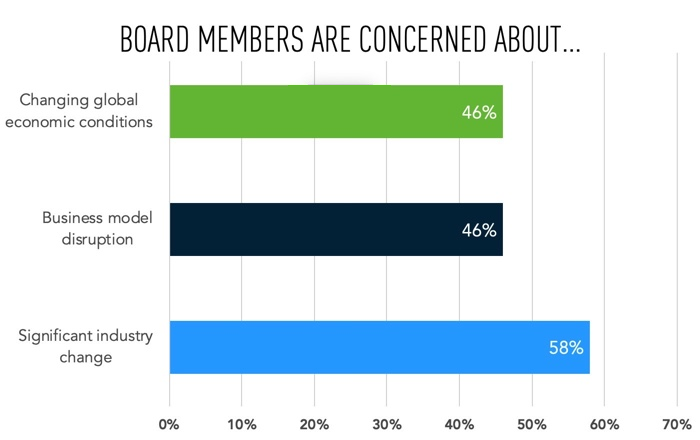Many young executives, when faced with their first board relationship, tend to think of their board as a necessary evil, said Steven Hemsley who spent more than a decade as CEO of United Health Group before moving into the role of executive chairman of the United Health board of directors. He believes too many new CEOs don’t spend enough time building the relationship when they first assume the role. And that failure can be painful later on.
“You don’t appreciate the board until you need it and when you need it, you really do.” He said. “Your board relationships, if they are in the right place, are a powerful enabler of your business. And if they’re not, that becomes a negative.”
Hemsley shared his experience at Health Evolution Summit 2018 in a conversation with Mark Ganz, who is currently CEO of Cambia Health, a health solutions company, and previously held the position of chairman of the board at America’s Health Insurance Plans. (You can watch the video below or read the following summary of the conversation.)
Ganz advises CEOs to “play big, play huge.” He believes that a fully engaged CEO should be imagining their role in a way that the organization could have never conceived on its own.
“It’s almost like constantly re-writing your job description, always in the service of the mission of the people that we serve.”
In a separate conversation, Health Evolution collaborated with Oliver Wyman to survey CEOs from prominent payer, provider and life sciences organizations about the evolution of the CEO-board partnership. A key finding: disruption is a strong concern. 58% of board member are concerned with significant industry change; 46% are concerned with business model disruption and 45% are concerned about global economic conditions. The findings were published in the white paper CEO Briefing Room: Making a Productive Board-CEO Partnership
A consensus recommendation from the survey group: Consider what you need from your board and ask for it. CEOs said that board members should be asked to tap into their networks and recruit talent. They also advise that the CEO should set clear expectations for board members so they can focus their efforts in ways that will provide the most benefit.
Ganz warned that a common mistake is when CEOs believe they need to control the relationship between the board and management. He believes it is better to be more transparent with the board and share the discussions that management is wrestling with. He believes “the more that we invite them in, the more they observe the line and don’t cross it.”
Breaking through and becoming ambitious for the enterprise
Hemsley believes that when a CEO is able to fully embrace the mission of the enterprise and the goals he or she has established, there is a breakthrough that will come when personal ambition fades away and the CEO can “become ambitious for the enterprise and the mission of the enterprise because you believe in it.
“And if you can really make that pivot, you move into a higher level of operating. And then you find that the organization finds that intoxicating because what enterprise doesn’t want leaders that are oriented that way?”
When a CEO can make that transition, Hemsley said, the enterprise understands that their concerns for the mission are authentic. “People will follow you because you’re a trusted broker and they know your compass points.” – Gus Venditto










